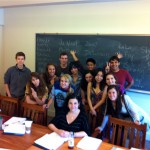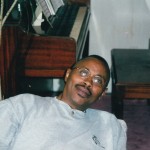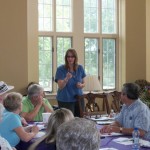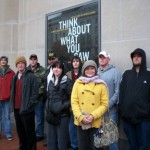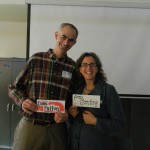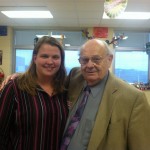Greetings from Baltimore, Maryland!
Forums › 2023 Summer Seminar › 2023 Summer Seminar Participant Introductions: due MAY 15 › Greetings from Baltimore, Maryland!
-
AuthorPosts
-
-
May 18, 2023 at 5:08 pm #31699
Hi all! I’m Katherine. I teach History in the Upper School at the Park School of Baltimore. Park is a progressive school that places a strong emphasis on three interrelated values: student self-advocacy, inviting students into the process of shaping the classroom and curriculum, and preparing students to critically engage in advancing social justice beyond Park. These values show up in a variety of ways at our school. Students take the stage in our weekly assemblies to present on independent studies, lead us in celebrating Black History Month, or facilitate a Q&A with a guest speaker. Clubs range from affinity spaces like Jewish Student Union and Black Female Forum to issues-focused groups like Climate Change Collective. Prior to graduation, seniors leave their Spring semester classes early to embark on self-designed projects that take them out into the Baltimore community. We’ve got some pretty amazing kids!
Next year, I am embarking on a new and exciting journey as a Holocaust educator at Park. Up until 2020, our department boasted an elective on the European Holocaust. The teacher who designed it and taught it had to leave us in the midst of COVID. Since then, Upper Schoolers’ explorations of the Holocaust have taken the forms of a unit in our Modern World 2 curriculum and periodic assemblies commemorating events like Kristallnacht. Our community is eager for this to change.
I’m here because I want to do more than “bring back the history elective.” I’m hoping that the students and I can use the space to think of impact beyond that particular class and the occasional assembly. Up until now, I’ve only thought about units in the context of a survey course that is ever-changing. What are the central things students should get out of a semester-long experience? I also hope to encounter concrete ideas for assessments and activities that go beyond the analytical essay, beyond whole-group discussion, and potentially beyond the classroom. What are effective ways to engage students? Finally, I want to learn how to go beyond trigger warnings to become more adept at dealing with difficult material and helping students do the same. I guess I’m also just excited to get to learn about the range of ways educators are connecting with this important subject. This seems like the perfect opportunity!
On a more personal note: I currently live in Baltimore with my wife and our three fur-babies Bambino, Squeakers, and Savory (all cute tabby kitties). We try to go camping at least twice a year, enjoy road trips with cool history podcasts, and spend a lot of time gardening or tinkering with wood. I play ice hockey whenever I can. My wife, Antje, is a German teacher. We speak a lot of German at home and we both travel to Germany every chance we can get to see her family. That’s actually made for some really eye-opening conversations about 20th-century history and memory.
I’m so excited to be a part of this and to meet you all in person! (And my apologies for the slightly belated post!)
-
May 19, 2023 at 2:58 pm #31701
Katherine,
I’m looking forward to meeting you and hearing more about the ways you and your school empower and support student voices and lived experiences! Your school sounds like what my former school is striving to be.
Soon….
Barb
-
-
AuthorPosts
- You must be logged in to reply to this topic.
Recent Replies
Recently Active
-
Active 8 hours, 58 minutes ago
-
Active 17 hours, 24 minutes ago
-
Active 5 days, 11 hours ago
-
Active 1 week, 1 day ago
-
Active 1 week, 2 days ago
- View All Members

